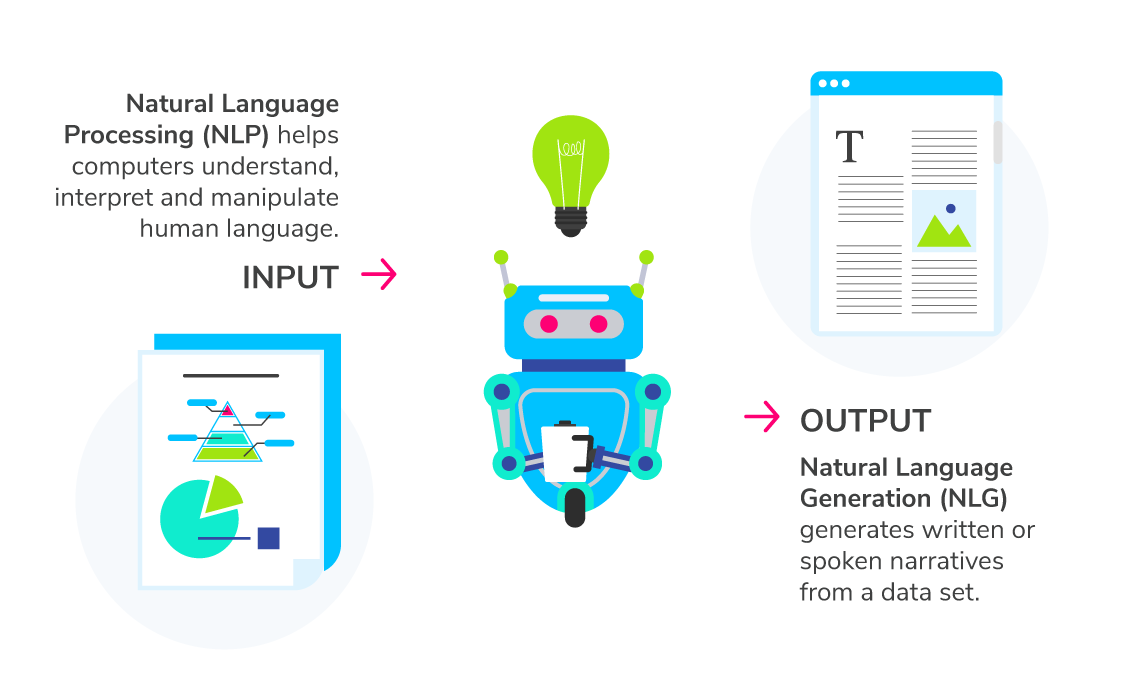AI Text Generation
What is Text Generation in AI?
Text generation in AI refers to the process by which artificial intelligence (AI) systems generate human-like text based on input data or prompts. This can include generating entire articles, chatbot responses, product descriptions, and more.
Text generation in AI involves several steps:
- Data Collection: The AI system collects large amounts of text data from various sources, including books, articles, and websites.
- Preprocessing: The collected data is preprocessed to remove noise, correct spelling errors, and normalize the text format.
- Model Training: The preprocessed data is then fed into a machine learning model, which learns patterns and relationships within the text data.
- Generation: Once the model is trained, it can generate new text based on input prompts or data.

Where can you find AI Text Generation models
This is the link to use to filter Hunggingface models for Text Generation:
https://huggingface.co/models?pipeline_tag=text-generation&sort=trending
Our favourite Model Authors:
The most interesting Text Generation project
One of the most interesting Text Generation projects is called Qwen2.5.
Qwen2.5 is the latest series of Qwen large language models. For Qwen2.5, we release a number of base language models and instruction-tuned language models ranging from 0.5 to 72 billion parameters. Qwen2.5 brings the following improvements upon Qwen2:
Significantly more knowledge and has greatly improved capabilities in coding and mathematics, thanks to our specialized expert models in these domains.
Significant improvements in instruction following, generating long texts (over 8K tokens), understanding structured data (e.g, tables), and generating structured outputs especially JSON. More resilient to the diversity of system prompts, enhancing role-play implementation and condition-setting for chatbots.
Long-context Support up to 128K tokens and can generate up to 8K tokens.
Multilingual support for over 29 languages, including Chinese, English, French, Spanish, Portuguese, German, Italian, Russian, Japanese, Korean, Vietnamese, Thai, Arabic, and more.
https://huggingface.co/Qwen/Qwen2.5-7B-InstructTypes of Text Generation in AI
There are several types of text generation in AI, including:
- Rule-based Generation: This approach uses predefined rules to generate text based on specific templates and structures.
- Statistical Generation: This approach uses statistical models to generate text based on probability distributions and linguistic patterns.
- Deep Learning-based Generation: This approach uses neural networks and deep learning techniques to generate text based on complex patterns and relationships.
Examples of Text Generation in AI
Some examples of text generation in AI include:
- Chatbots: Many online chatbots use text generation to respond to customer inquiries and provide support.
- Content Creation: AI-powered tools can generate high-quality content such as blog posts, social media posts, and even entire books.
- Language Translation: AI can be used to translate languages in real-time, allowing people to communicate across language barriers.
- Summarization: AI can summarize long pieces of text into shorter, more digestible versions.
Applications of Text Generation in AI
Text generation in AI has numerous applications in various industries, including:
- Customer Service: Chatbots powered by text generation can handle customer inquiries and provide support 24/7.
- Marketing: AI-generated content can be used to create targeted marketing campaigns and improve brand awareness.
- Education: AI-powered tools can generate personalized learning materials and adapt to individual students' needs.
- Healthcare: AI can be used to analyze medical texts and provide insights for healthcare professionals.
Challenges and Limitations of Text Generation in AI
The challenges and limitations of text generation in AI include:
- Lack of Contextual Understanding: Current AI systems often struggle to understand the nuances of human language, leading to generated text that may not be entirely coherent or contextually relevant.
- Limited Creativity: While AI can generate text based on patterns and relationships, it often lacks the creativity and originality of human writers.
- Dependence on Data Quality: The quality of generated text depends heavily on the quality of the training data, which can be affected by bias, noise, and other factors.
Future Directions of Text Generation in AI
The future directions of text generation in AI include:
- Advancements in Deep Learning: Advances in deep learning techniques will continue to improve the accuracy and coherence of generated text.
- Integration with Other AI Technologies: Text generation in AI will increasingly be integrated with other AI technologies, such as computer vision and speech recognition, to create more comprehensive and interactive interfaces.
- Human-AI Collaboration: As AI-generated text becomes more prevalent, there will be a growing need for human-AI collaboration to ensure that generated text is accurate, coherent, and contextually relevant.
Conclusion
Text generation in AI has come a long way since its inception in the 1960s. From chatbots to content creation, language translation to summarization, AI-generated text is revolutionizing the way we interact with machines and each other.
How to setup a Text generation LLM on Ubuntu Linux
If you are ready to setup your first Text generation system follow the instructions in our next page:
How to setup a Feature Extraction system
Image sources
Figure 1: https://www.contentserv.com/hs-fs/hubfs/blog/EN/nlp-nlg-automated-text-generation-is-powering-content-creation.png?width=1140&height=700&name=nlp-nlg-automated-text-generation-is-powering-content-creation.png
More information
- AI Text Classification
- What is AI Token classification
- What is Table Question Answering in AI
- What is Question Answering in AI
- What is Zero-Shot Classification in AI
- What is Translation in AI
- What is Text AI Summarization
- What is Feature Extraction in AI
- What is Text Generation in AI
- What is Text2Text Generation in AI
- What is Fill-Mask in AI
- What is Sentence Similarity in AI

